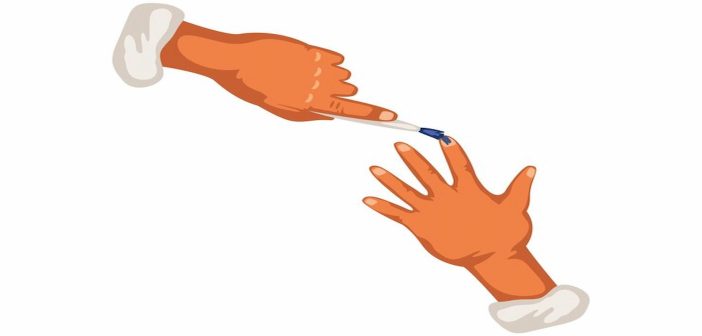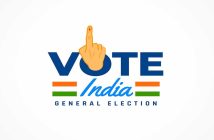The Udaipur Lok Sabha constituency in Rajasthan recently concluded its 2024 election, with a voter turnout of 66.66%. The contest was between Mannalal Rawat of the BJP and Tarachand Meena of the INC, along with several other candidates. Discover the factors that influenced the outcome and the implications for local, state, and national politics.
Udaipur, a prominent Lok Sabha constituency in Rajasthan, recently concluded its 2024 election with a voter turnout of 66.66%. The contest was between Mannalal Rawat of the Bharatiya Janata Party (BJP) and Tarachand Meena of the Indian National Congress (INC), along with several other candidates from regional and smaller parties.
Candidates and their profiles
Mannalal Rawat (BJP): A seasoned politician with a strong grassroots presence, Rawat has been actively involved in local issues and development projects. He has promised to focus on infrastructure development, job creation, and improving healthcare facilities in the constituency.
Tarachand Meena (INC): Meena, a relative newcomer to national politics, has gained popularity for his work in the social sector. He has pledged to address issues related to education, women’s empowerment, and environmental conservation if elected.
Dalpat Ram Garasia (BSP): Garasia, a Bahujan Samaj Party (BSP) candidate, has been advocating for the rights of marginalized communities in the region. He has emphasized the need for inclusive development and social justice.
Prakash Chand (BADVP): Chand, representing the Bhartiya Adivasi Vikas Party (BADVP), has focused his campaign on issues affecting tribal communities, such as land rights and access to natural resources.Dr.
Savita Kumari Ahari (IND): An independent candidate with a background in healthcare, Ahari has promised to improve the quality and accessibility of medical services in the constituency.
General Election to Parliamentary Constituencies: Trends & Results June-2024
Parliamentary Constituency 19 – UDAIPUR (Rajasthan)
Won
738286 (+ 261608)
MANNA LAL RAWAT
Bharatiya Janata Party
Lost
476678 ( -261608)
TARACHAND MEENA
Indian National Congress
Lost
217138 ( -521148)
PRAKASH CHAND
Bharat Adivasi Party
Lost
14460 ( -723826)
DALPAT RAM GARASIA
Bahujan Samaj Party
Lost
8162 ( -730124)
DR. SAVITA KUMARI AHARI
Independent
Lost
7996 ( -730290)
PRABHULAL MEENA
Independent
Lost
6777 ( -731509)
RAJENDRA KUMAR MEENA
Indian Peoples Green Party
Lost
5931 ( -732355)
KANJI LAL DAMOR
Independent
22948 ( -715338)
NOTA
None of the Above
लोक सभा निर्वाचन क्षेत्रों के लिए आम चुनाव: रुझान और परिणाम जून-2024
लोक सभा क्षेत्र 19 – उदयपुर (राजस्थान)
विजयी
738286 (+ 261608)
मन्ना लाल रावत
भारतीय जनता पार्टी
हारा
476678 ( -261608)
ताराचंद मीना
इंडियन नेशनल काँग्रेस
हारा
217138 ( -521148)
प्रकाश चन्द
भारत आदिवासी पार्टी
हारा
14460 ( -723826)
दलपत राम गरासिया
बहुजन समाज पार्टी
हारा
8162 ( -730124)
डॉ. सविता कुमारी अहारी
निर्दलीय
हारा
7996 ( -730290)
प्रभुलाल मीणा
निर्दलीय
हारा
6777 ( -731509)
राजेन्द्र कुमार मीणा
इण्डियन पीपुल्स ग्रीन पार्टी
हारा
5931 ( -732355)
कानजी लाल डामोर
निर्दलीय
22948 ( -715338)
NOTA
इनमें से कोई नहीं
General Election to Parliamentary Constituencies: Trends & Results June-2024
Parliamentary Constituency 19 – UDAIPUR (Rajasthan)
| S.N. | Candidate | Party | EVM Votes | Postal Votes | Total Votes | % of Votes |
|---|---|---|---|---|---|---|
| 1 | MANNA LAL RAWAT | Bharatiya Janata Party | 732757 | 5529 | 738286 | 49.27 |
| 2 | TARACHAND MEENA | Indian National Congress | 473167 | 3511 | 476678 | 31.81 |
| 3 | PRAKASH CHAND | Bharat Adivasi Party | 215390 | 1748 | 217138 | 14.49 |
| 4 | DALPAT RAM GARASIA | Bahujan Samaj Party | 14427 | 33 | 14460 | 0.97 |
| 5 | DR. SAVITA KUMARI AHARI | Independent | 8130 | 32 | 8162 | 0.54 |
| 6 | PRABHULAL MEENA | Independent | 7972 | 24 | 7996 | 0.53 |
| 7 | RAJENDRA KUMAR MEENA | Indian Peoples Green Party | 6752 | 25 | 6777 | 0.45 |
| 8 | KANJI LAL DAMOR | Independent | 5912 | 19 | 5931 | 0.4 |
| 9 | NOTA | None of the Above | 22848 | 100 | 22948 | 1.53 |
| Total | 1487355 | 11021 | 1498376 |
लोक सभा निर्वाचन क्षेत्रों के लिए आम चुनाव: रुझान और परिणाम जून-2024
लोक सभा क्षेत्र 19 – उदयपुर (राजस्थान)
| क्रम संख्या. | अभ्यर्थी | दल का नाम | ई.वी.एम. मत | डाक द्वारा मत | कुल मत | % मत |
|---|---|---|---|---|---|---|
| 1 | मन्ना लाल रावत | भारतीय जनता पार्टी | 732757 | 5529 | 738286 | 49.27 |
| 2 | ताराचंद मीना | इंडियन नेशनल काँग्रेस | 473167 | 3511 | 476678 | 31.81 |
| 3 | प्रकाश चन्द | भारत आदिवासी पार्टी | 215390 | 1748 | 217138 | 14.49 |
| 4 | दलपत राम गरासिया | बहुजन समाज पार्टी | 14427 | 33 | 14460 | 0.97 |
| 5 | डॉ. सविता कुमारी अहारी | निर्दलीय | 8130 | 32 | 8162 | 0.54 |
| 6 | प्रभुलाल मीणा | निर्दलीय | 7972 | 24 | 7996 | 0.53 |
| 7 | राजेन्द्र कुमार मीणा | इण्डियन पीपुल्स ग्रीन पार्टी | 6752 | 25 | 6777 | 0.45 |
| 8 | कानजी लाल डामोर | निर्दलीय | 5912 | 19 | 5931 | 0.4 |
| 9 | NOTA | इनमें से कोई नहीं | 22848 | 100 | 22948 | 1.53 |
| कुल | 1487355 | 11021 | 1498376 |
Factors influencing the outcome
The Udaipur Lok Sabha election was influenced by several factors, including the demographic composition of the constituency, voter turnout, and local issues.
The region has a significant population of Scheduled Tribes, particularly the Meena community, who have traditionally supported the Congress party. However, the BJP has made inroads in recent years by fielding candidates from the community and focusing on development initiatives.
Voter turnout, which stood at 66.66%, was a crucial factor in determining the outcome. Higher turnout among specific demographic groups, such as youth and women, could have swayed the results in favor of certain candidates.
Local issues, such as water scarcity, unemployment, and infrastructure development, also played a role in shaping voter preferences. Candidates’ ability to connect with the electorate and address their concerns was a key determinant of their success.
Implications for local, state, and national politics
The results of the Udaipur Lok Sabha election have significant implications for local, state, and national politics. At the local level, the winning candidate will be responsible for representing the constituency’s interests in the Parliament and working towards its development.
At the state level, the performance of the BJP and Congress in Udaipur could be seen as a barometer for their popularity in Rajasthan. The results may also influence the dynamics of state politics, particularly in terms of alliances and power-sharing arrangements.
Nationally, the Udaipur election is part of a larger picture of the 2024 Lok Sabha polls. The performance of the BJP and Congress in this constituency, along with other key battlegrounds, will shape the narrative of the election and the formation of the next government at the Center.
Conclusion
The 2024 Udaipur Lok Sabha election was a closely watched contest that highlighted the complexities of Indian politics. The results reflect the changing dynamics of the electorate and the evolving priorities of voters. As the nation grapples with pressing issues such as economic development, social justice, and environmental sustainability, the Udaipur election serves as a reminder of the power of the people to shape the future of their country.




